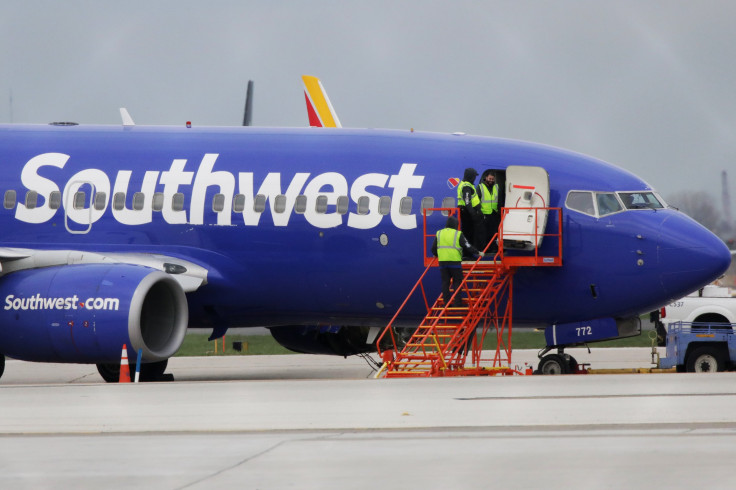Labor Tensions Fade At Southwest Airlines But Rise At American Airlines

Back in February, a labor dispute caused major operational disruptions at Southwest Airlines (NYSE:LUV) . Southwest's aggressive response to what it alleged was an illegal work slowdown by its mechanics initially caused tensions to rise even further. However, the two sides have resolved their differences, recently agreeing to (and ratifying) a new long-term contract.
While labor tensions have cooled at Southwest, similar issues are now cropping up at American Airlines (NASDAQ:AAL) . In all likelihood, American will have a much tougher time achieving labor peace than its rival.
Southwest makes peace with its mechanics
In mid-February, Southwest saw an unusual surge in maintenance issues, leading to hundreds of flight cancellations each day. The carrier quickly concluded that mechanics in certain cities were engaging in a deliberate work slowdown to gain leverage in ongoing contract negotiations.
Southwest responded by declaring an "operational emergency" and threatened to fire mechanics who called in sick without a valid doctor's note. It then sued the mechanics' union on Feb. 28, demanding that the union take action to end what the airline described as an illegal slowdown.
However, at the same time as it was taking these actions, Southwest continued to negotiate with the mechanics' union. These talks led to a tentative contract agreement by mid-March. The airline offered an immediate 20% pay raise and $160 million in retroactive pay in exchange for work-rule changes.
Southwest's mechanics previously had rejected the last tentative agreement that came up for ratification. Fortunately, the new agreement passed muster. Southwest announced on May 21 that the new contract would go into effect immediately and continue until April 2024.
An eerily similar situation
Recent developments at American Airlines have been remarkably similar to what transpired at Southwest earlier this year. The airline says that it had to cancel 644 flights and delay 270 others by at least two hours between Feb. 4 and May 13 due to a spike in maintenance write-ups.
Like Southwest, American claims that the only reasonable explanation is a deliberate work action by its mechanics, who are several years into contract negotiations. In another parallel, the spike in maintenance-related cancellations seems to be concentrated in a few cities -- in this case, Charlotte, Philadelphia, and Phoenix. American also noted that mechanics have suddenly started refusing overtime, making it hard to address maintenance issues.
American is responding in much the same way as Southwest did a few months ago. On May 20, it filed a lawsuit against the two unions that represent its mechanics, asking a federal judge to force them to end the alleged slowdown.
Union leaders have denied that the mechanics are engaging in any illegal job action. They claim that the lawsuit is an attempt by management to bully them into allowing American to send more maintenance work overseas.
Resolving this dispute won't be easy
Though Southwest had been embroiled in contentious negotiations with its mechanics for more than six years at the time of its labor dispute earlier this year, the carrier has generally been known for good labor relations. This may help rebuild trust between management and labor in the years ahead.
By contrast, American has clashed repeatedly with its unions over the years. Despite handing out no-strings-attached bonuses and raises to many workers in recent years, American has continued to suffer from mediocre employee morale. Notably, American outsources far less maintenance work than its main competitors, yet this does not seem to have bought it any goodwill with its mechanics.
This lack of trust could make it even harder to de-escalate the current labor tensions. American's pilots and flight attendants have also jumped into the fray, criticizing the airline for taking the mechanics' unions to court. That doesn't bode well for upcoming contract negotiations with the unions for those work groups.
American has much lower margins than Southwest, so it can't afford to buy its way out of labor trouble by giving its unions everything they want. As a result, investors should expect labor tensions to be an ongoing issue at the world's largest airline.
Adam Levine-Weinberg owns shares of Southwest Airlines and is long January 2020 $20 calls on American Airlines Group. The Motley Fool owns shares of and recommends Southwest Airlines. The Motley Fool has a disclosure policy.
This article originally appeared in the Motley Fool.




















